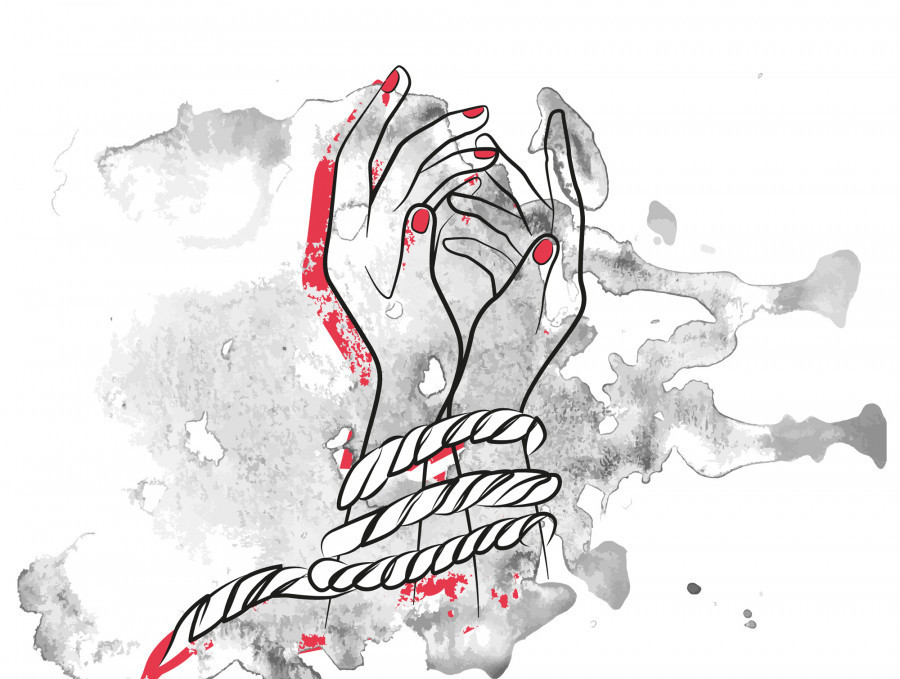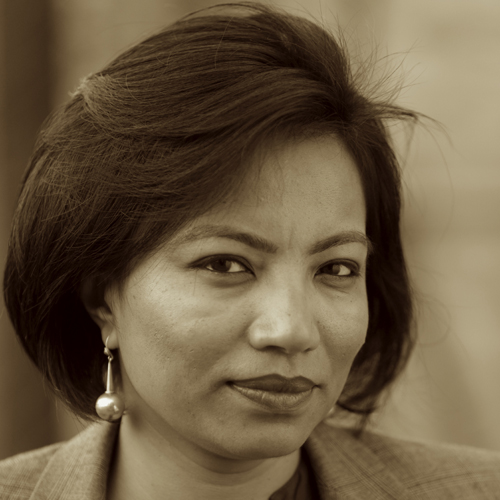Columns
Distant echoes of war
As Nepal’s transitional justice process remains incomplete, wartime sexual violence survivors continue to suffer while perpetrators are free.
Subina Shrestha
The day I met Rima (name changed), it was already late morning and she was anxious. There were around seven women in a small room. She rocked nervously and reiterated that she did not want to talk. We told her she did not have to. An hour later, we could not stop her from telling her story.
Rima’s body was like a battleground in itself. It was 2001: Peace talks between the government and the then rebels had just failed. Nepal Army officials came to Rima’s house and arrested her. She was kept in captivity and repeatedly raped for 14 months by army personnel. She was only 14 at the time. She told her story in minute detail: How her limbs swelled up after being tied up, how the sounds of boots made her heart thump and how the men stomped on her breasts with those boots. She was stoic in her storytelling. Everyone almost forgot to breathe.
But what upsets Rima now is not only her past. Like many other women in the world who were sexually abused in conflict, Rima faced social ostracism once the war ended, and twisted versions of social morality and patriarchy won once again. Rima tried to live with dignity.
Rima’s quiet storytelling broke into loud sobs when she started talking about her children. Her inability to give them a decent life broke her resolve. Her strength in times of great vulnerability is what breaks my heart.
This meeting was in 2021, when we were still in the uncertain stages of shooting our film, Devi. I was with Devi Khadka, our protagonist, a survivor of sexual violence in Nepal’s decade-long conflict. At the time, Devi was still quite unsure about what she could do with other victims like herself, but she wanted to investigate. We had followed her journey and found ourselves in a room of forgotten women: Girls and women who had been sexually abused and raped during Nepal’s conflict. But their existence, while cursorily accepted by the state, had been effectively erased from Nepal’s history.
Devi Khadka’s story had haunted me for years. I’d read about her in the newspapers, shocked at some of the commentary, unable to grasp the callousness of it. Khadka was arrested, tortured and raped in custody by Nepal Police personnel in 1997. She was made to tell her story to the press by the Maoist Party after she was released in 1998. A well-known ‘feminist’ columnist wrote a piece in the Nepali Patra weekly in defence of the police, questioning the veracity of the then seventeen-year-old traumatised girl.
It took years for Devi to trust the press, and I am humbled that she trusted me to tell her story. It took four more years of telling me her story, listening back to versions of her own story, and analysing it that helped her sharpen her vision. The very act of telling one's story can give the storyteller agency. When Devi first talked to me, she was a district leader of the Maoist party, haunted by the loss of her brother, Rit Bahadur, during the conflict. Like an automaton, she fulfilled the role of a Maoist cadre, telling herself that the party was as loyal to her as she was to the party. But as she met more victims, the change in her was palpable.
For those who have not seen this change, it’s easy to dismiss Devi Khadka on so many grounds: Devi can barely understand English, the language of the world of development. She has had only one day of formal education, after all. But she can, in her mother tongue, give an eloquent expression of how wartime sexual violence survivors in Nepal can be addressed. She is doing her undergraduate studies, totally self-taught, and she pours through legal documents and policy papers, catching details that escape many. She can stand on stage, tell her story and move people to action. And she can be sharp.
When someone asked her if she can handle budgets as a non-English speaker, she calmly replied, “I’ve managed ministries. Of course I can handle it. If you are asking if I can handle your language, I can always get hired help.” Yet, some from Nepal’s transitional justice community have been unforgiving of Devi, calling her “political” and disingenuous. However, this is hardly a time for pettiness.
My job as a filmmaker has allowed me to examine Devi. I’ve seen the trauma that wartime rape has left her with and the struggle she still undergoes to overcome the demons left behind by it. But it is the story of many Rimas, raped by the state forces or violated by the Maoists, and forsaken by both, that has shaken Devi to the core. Once committed, she’s been steadfast. With very little support, she has built a network of survivors, lobbied with the government and other development actors, worked with human rights activists, and has added to the work of many others who have fought for justice to make a tangible impact on Nepal’s transitional justice process. The amended Transitional Justice bill, currently in Parliament, has, for the first time, included wartime sexual violence survivors and opened ways for them to get reparations and justice. Perhaps a better way to understand Devi today is as a human rights activist with political acumen.
Storytelling is an act of resistance. It was for Devi but for me as well—a way of expressing solidarity to all the women who have suffered sexual violence during the war (and in peacetime).
For every year that Nepal’s transitional justice process remains incomplete, women like Rima will keep suffering while perpetrators remain free. The wounds of the likes of Rima have not healed. For now, Nepal’s wartime rape survivors have some hope with this bill. Devi Khadka, with other survivors, will push on. With the other players in the field who are schooled in the language and the world of development, welcoming Devi as an equal player—not a victim any more, but a leader—will strengthen the cause.
Shrestha is a filmmaker and a journalist. Her film ‘Devi’ is screening at the DocEdge Festival in New Zealand in June.




 20.9°C Kathmandu
20.9°C Kathmandu















